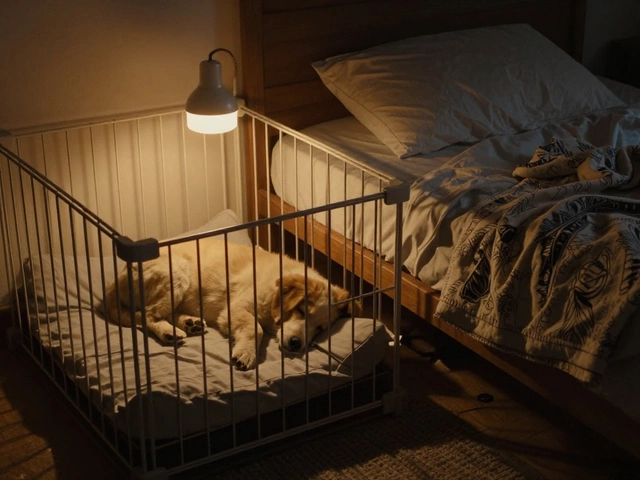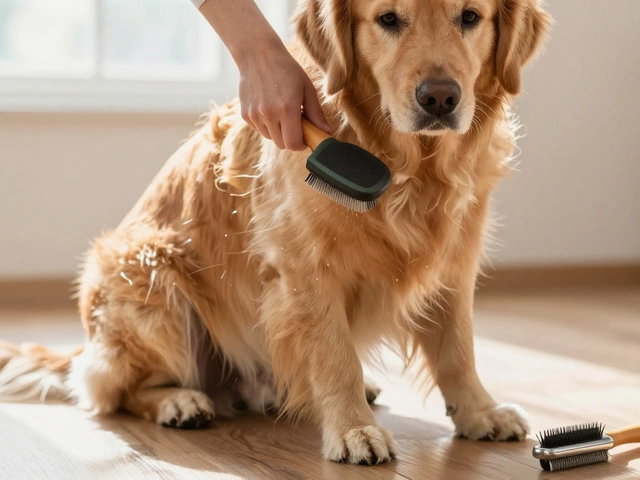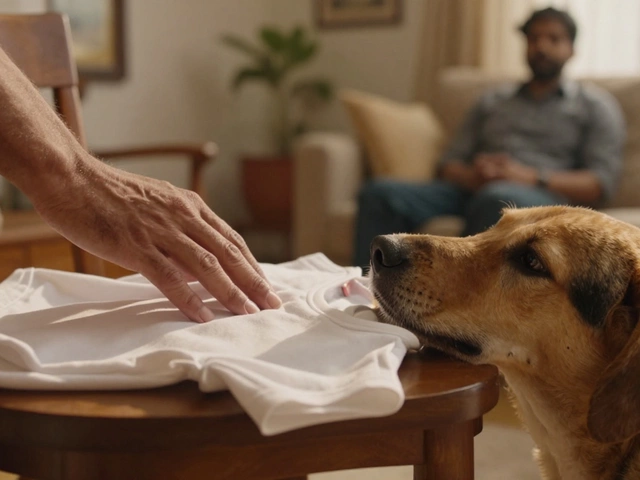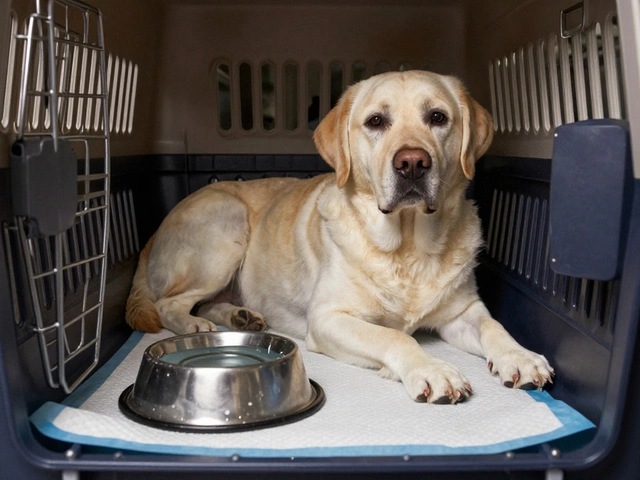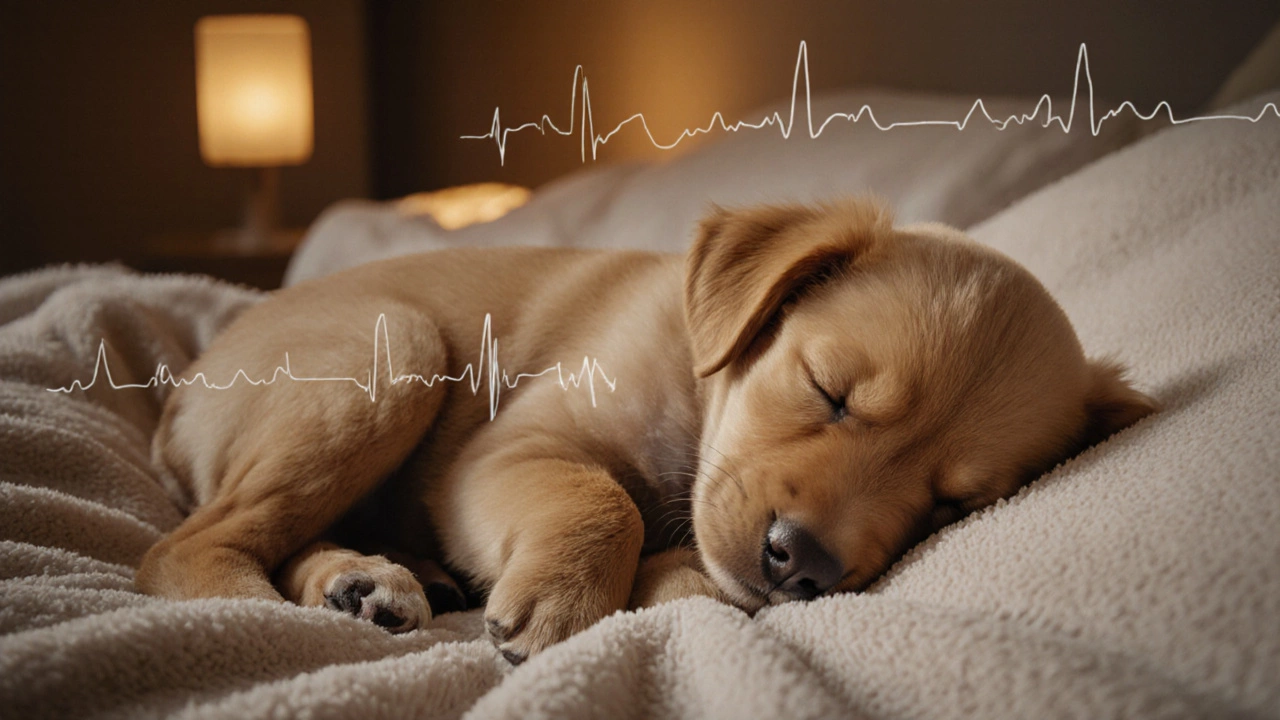
Puppy Sleep Stress Calculator
Stress Impact Assessment
Key Takeaways
- Sleep is crucial for a puppy’s growth, brain development, and immune strength.
- Waking a puppy abruptly can cause stress, spikes in heart rate, and hormonal imbalances.
- Repeated disturbances may lead to long‑term behavior issues and weakened health.
- Understanding puppy sleep stages helps owners know when it’s safe to interact.
- Gentle handling and a calm environment support healthy sleep patterns.
When a Puppy is a young dog up to one year old that is still building muscles, nerves, and social skills is sleeping puppy, the body is doing far more than just resting. The tiny heart beats slower, the brain cycles through critical REM phases, and a flood of growth hormones courses through the bloodstream. Interrupting that process isn’t just a harmless poke; it can trigger a cascade of physiological stress that echoes long after the pup wakes up.
Why Sleep Matters for Puppies
Freshly weaned pups spend about 18‑20 hours a day dozing. During this time, three key things happen:
- Physical growth: In deep REM sleep a stage where brain activity mirrors wakefulness, aiding memory consolidation and neural growth, the pituitary gland releases growth hormone (GH). GH fuels bone lengthening, muscle development, and organ maturation.
- Immune strengthening: A sleeping puppy’s immune system the network of cells and proteins defending against disease ramps up production of antibodies, preparing it for future pathogen exposure.
- Brain wiring: Puppies process the massive influx of sensory data they collected while awake. During REM, synaptic connections are pruned and reinforced, forming the foundation for future learning and social behavior.
Skipping any of these phases can stunt development, just as missing school days would affect a child’s education.
What Happens When You Wake a Sleeping Puppy?
The moment you rouse a pup, a short‑burst stress response kicks in. The body releases catecholamines-mainly adrenaline and norepinephrine-raising heart rate and blood pressure. Simultaneously, cortisol, the primary stress hormone, spikes. In a mature dog, this ‘fight‑or‑flight’ kicker is manageable, but a puppy’s nervous system is still calibrating.
Here’s a quick rundown of the immediate physiological shift:
- Heart rate: From a calm 80‑100bpm during deep sleep to 130‑150bpm within seconds.
- Breathing: Shifts from slow, rhythmic breaths to rapid, shallow ones.
- Hormonal surge: Cortisol can rise up to 200% compared to baseline.
These changes are harmless in an isolated incident, but recurring disturbances keep the puppy in a semi‑stressful state, exhausting its developing systems.
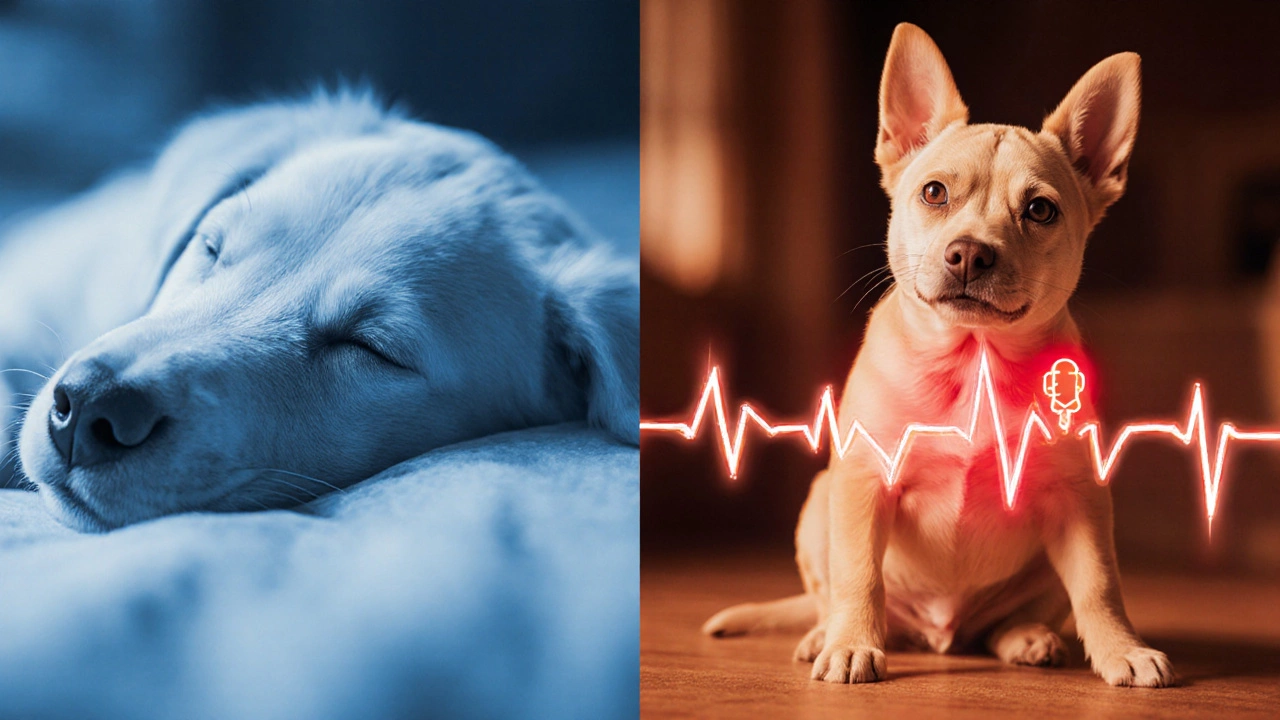
Short‑Term Signs of Stress After Being Awakened
Watch for these red flags the first few minutes after a sudden wake‑up:
- Whimpering or high‑pitched yelps.
- Rapid tail flicking or tense posture.
- Refusal to eat or drink for the next hour.
- Excessive licking of paws or mouth-self‑soothing behavior.
If any of these persist beyond 30‑45 minutes, give the pup space and a quiet nook to settle down.
Long‑Term Health and Behavioral Impacts
Consistently breaking a puppy’s sleep can affect both body and mind. Research published in the Journal of Veterinary Behavior (2023) tracked a cohort of 82 Labrador puppies and found that those whose owners woke them more than three times daily had a 27% higher incidence of anxiety‑related behaviors by six months.
Physical repercussions include:
- Reduced GH secretion, potentially leading to slower weight gain and smaller muscle mass.
- Higher baseline cortisol, which can suppress immune response and increase susceptibility to infections.
- Disrupted circadian rhythms, making it harder for the puppy to settle into a regular bedtime schedule.
Behaviorally, the pup may develop:
- Hyper‑vigilance-always on the lookout for sudden disturbances.
- Separation anxiety, because the puppy learns that comfort is fleeting.
- Difficulty concentrating during training sessions, as stress hampers memory consolidation.
How to Handle a Sleeping Puppy Safely
If you need to move a sleeping pup-perhaps to avoid a hazard-follow these gentle steps:
- Assess the need: Ask yourself if it’s truly urgent. If not, let the pup rest.
- Approach quietly: Speak softly, avoid sudden movements, and keep lights dim.
- Support the body: Slide one hand under the chest and the other under the hindquarters. Lift as a cohesive unit, minimizing jarring motions.
- Place gently: Set the puppy down on a soft surface. Keep your hand nearby for a reassuring touch.
- Offer reassurance: A calm voice and a gentle stroke can help reset the stress response.
After moving the pup, give it a few minutes to re‑adjust before resuming normal activity.
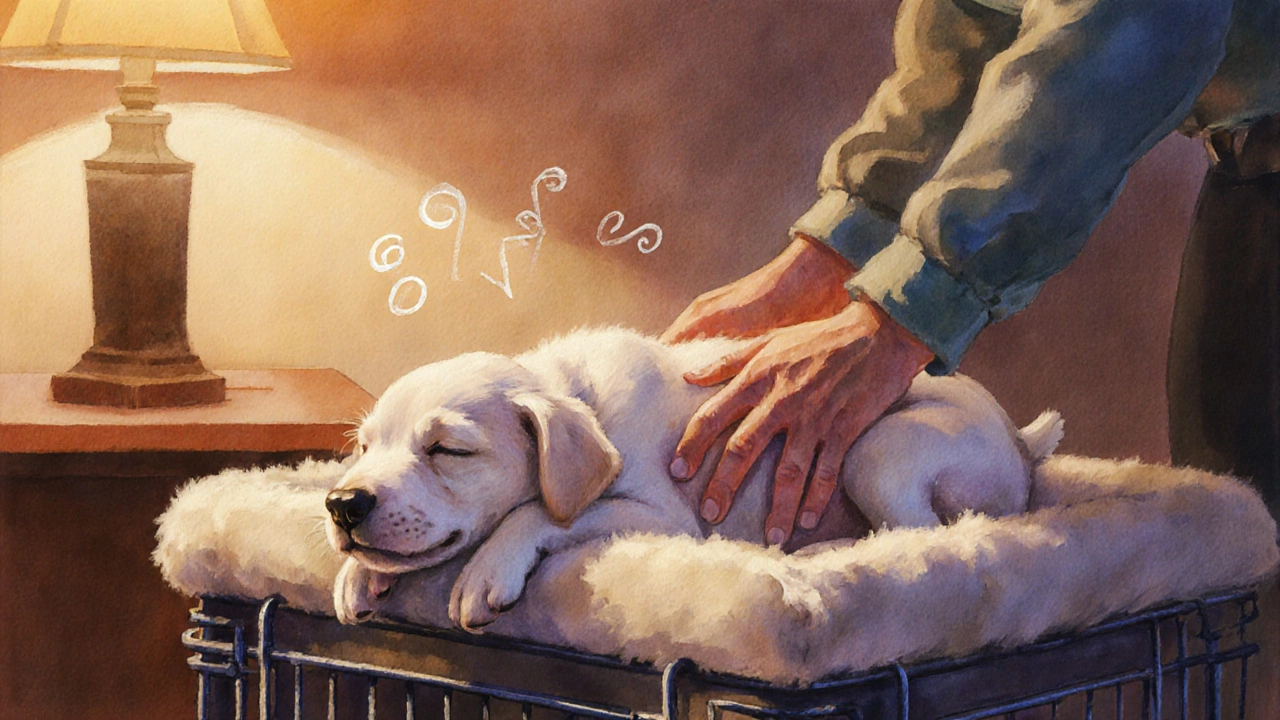
Practical Tips to Preserve Good Sleep
- Create a sleep‑friendly zone: Use a crate or a cozy corner with a temperature‑controlled blanket.
- Establish a routine: Consistent feeding, play, and nap times train the puppy’s internal clock.
- Limit noise: Keep televisions, blenders, and loud conversations away from the nap area.
- Watch for sleep cues: Yawning, slow blinking, and a relaxed body indicate the puppy is about to doze.
- Schedule vet checks: Regular health exams catch any sleep‑related issues early, such as respiratory infections that disturb rest.
Common Myths About Puppy Sleep
Myth 1: “Puppies need less sleep than adults.” Reality: Puppies actually need the most sleep of any life stage-up to 20 hours a day.
Myth 2: “A quick shake won’t hurt.” Reality: Even brief disturbances trigger stress hormones; repeated shocks add up.
Myth 3: “If they’re happy, waking them is fine.” Reality: A happy puppy still relies on uninterrupted REM cycles for brain development.
Frequently Asked Questions
How long can a puppy stay asleep without waking?
Most puppies nap in 30‑minute intervals, but deep sleep phases can last up to two hours. It’s best to let them finish each cycle before intervening.
Is it okay to wake a puppy for bathroom breaks?
If the puppy shows signs of needing to go-whining, pacing, or sniffing-gently rouse them. Use the calm handling steps above to minimize stress.
Can sleep deprivation affect a puppy’s training?
Yes. Lack of REM sleep hampers memory consolidation, making it harder for the puppy to retain commands and cues.
What signals that my puppy is in deep sleep?
A relaxed body, slow breathing, and occasional twitches of the ears or paws indicate REM or deep non‑REM stages.
Should I use a white‑noise machine for my puppy’s room?
Yes, a gentle hum can mask sudden household noises, helping the puppy stay in uninterrupted sleep cycles.
Can stress from waking affect my puppy’s health later in life?
Chronic early‑life stress can predispose dogs to anxiety disorders, lower immune resilience, and even metabolic issues as adults.

